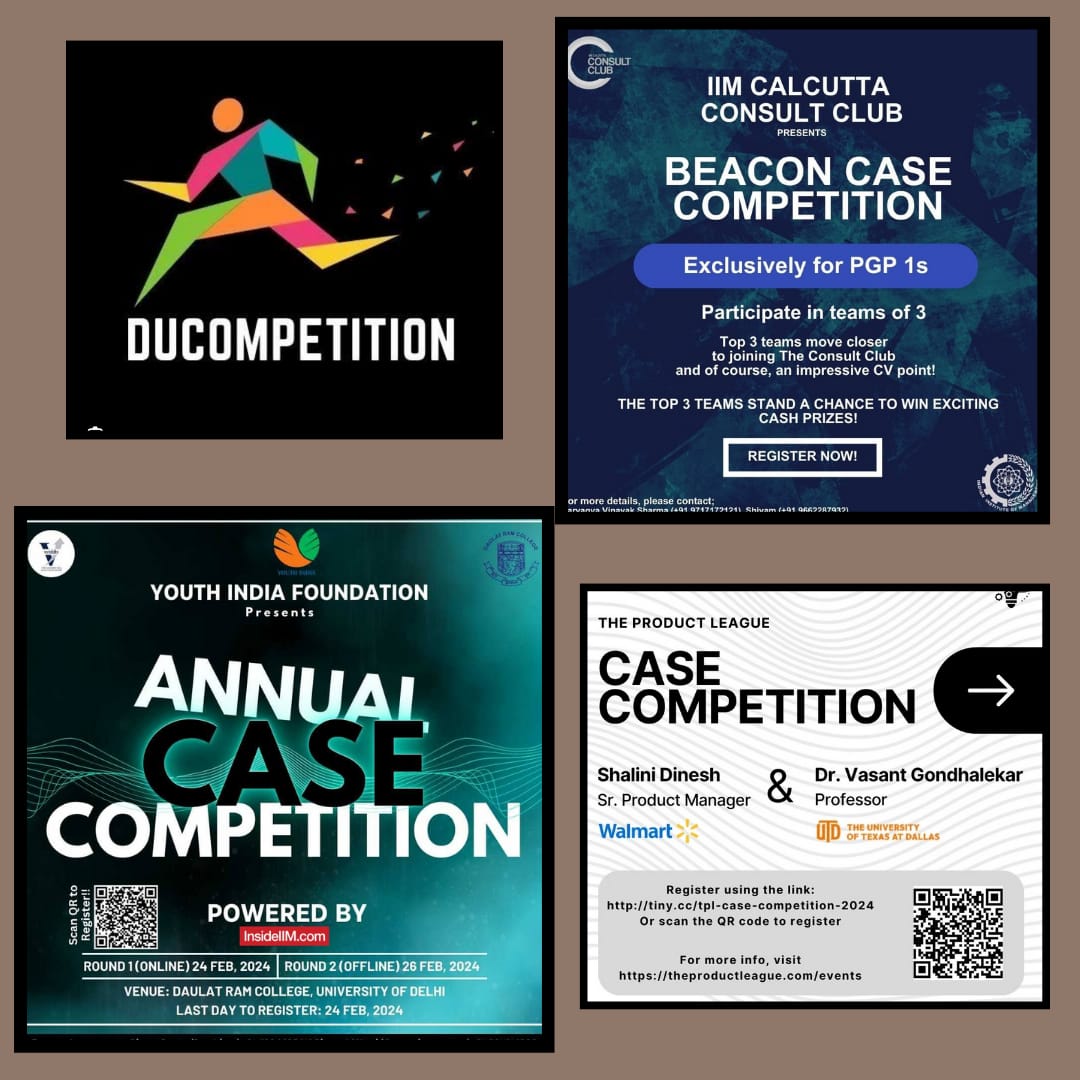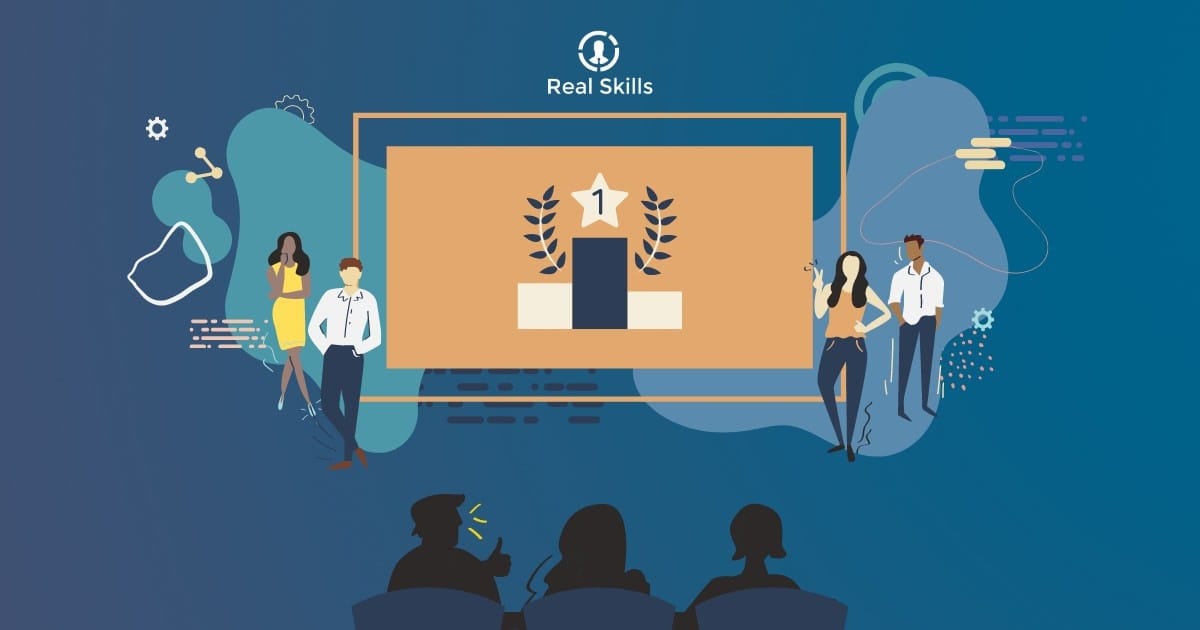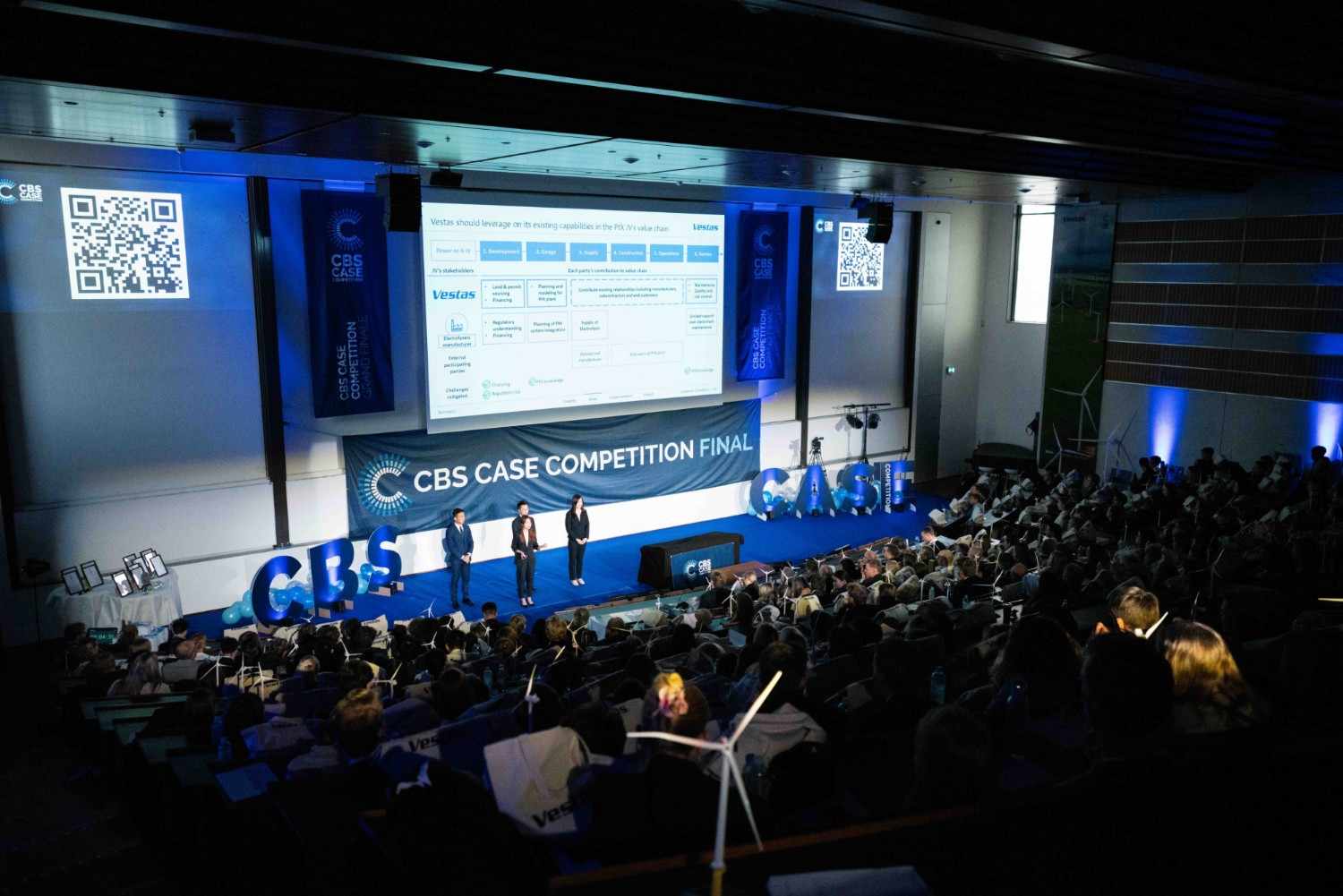Mastering Case Competitions: Tips, Resources & Benefits

Studies show that individuals who participate in case studies and debates tend to perform better academically and develop greater resilience, which leads to improved mental health and boosted confidence.
However, taking part in various competitions can be a little hectic but surely give you an aura of confidence everywhere you go. If you are a beginner, want to participate in case studies, and want to show off your talent, we've got you!
Table Of Contents:
What Are Case Competitions?
Case competitions are academic or professional events where participants analyze and present solutions to a business or organizational challenge, typically within a limited timeframe, and by evaluating your speech and presentation, the judges announce the winner.
Types of Case Competitions
- Business Case Competitions: Focus on business strategy, marketing, finance, and operations.
- Consulting Case Competitions: Emulate real-world consulting engagements, testing problem-solving and presentation skills.
- Entrepreneurship Case Competitions: Challenge participants to develop innovative business ideas and pitches.
- Finance Case Competitions: Concentrate on financial analysis, investment decisions, and portfolio management.
- Marketing Case Competitions: emphasize marketing strategy, branding, and campaign development.
- Operations Case Competitions: Focus on supply chain management, logistics, and process improvement.
- Social Impact Case Competitions: Address social and environmental issues, requiring innovative solutions

Top Websites For Case Comps Prep
Hacking the Case Interview
- Top Resources: Comprehensive guide to winning case competitions, list of 50+ competitions.
- Highlights: step-by-step strategies, various international competitions.
- Link: Hacking the Case Interview
Corporate Finance Institute (CFI)
- Top Resources: Overview of top undergraduate case competitions.
- Highlights: prizes, competition details for various fields, including finance and business.
- Link: Corporate Finance Institute
MBA Crystal Ball
- Top Resources: List of notable case competitions for undergraduates.
- Highlights: insights on benefits and preparation tips for participants.
- Link: MBA Crystal Ball
University of Connecticut Career Development Office
- Top Resources: Support for students in finding case competitions.
- Highlights: networking opportunities and potential scholarships or awards.
- Link: UConn Career Development
Tippie College of Business
- Top Resources: Information on various case competitions and involvement opportunities.
- Highlights: real-world problem-solving experiences and networking with corporate partners.
- Link: Tippie College of Business
How Colleges Evaluate Case Competitions?
Colleges and universities often evaluate case competitions as a valuable learning experience, considering the following aspects:
- Academic rigor: Case competitions demonstrate application of theoretical concepts to real-world problems.
- Critical thinking and problem-solving skills: Participants showcase analytical and creative thinking.
- Communication and presentation skills: effective communication of complex ideas and solutions.

- Teamwork and collaboration: ability to work collaboratively with peers towards a common goal.
- Leadership and initiative: demonstration of leadership skills, taking initiative, and guiding team efforts.
- Time management and organization: ability to manage time, prioritize tasks, and meet deadlines.
- Industry knowledge and understanding: display of industry insights, trends, and best practices.
- Innovation and creativity: Originality and innovation in solutions and approaches.
- Professionalism and networking: Interacting with industry professionals, judges, and peers.
- Reflection and self-improvement: ability to learn from feedback, reflect on performance, and identify areas for growth.
How Are Case Competitions Important?
- Develops problem-solving skills: Case competitions simulate real-world business scenarios, helping participants develop analytical, critical thinking, and creative problem-solving skills.
- Enhances collaboration and teamwork: Participants learn to work effectively in teams, share ideas, and build on each other's strengths.
- Improves communication and presentation skills: Presenting solutions to judges and peers helps develop clear, concise, and persuasive communication skills.
- Applies theoretical knowledge to practical challenges Cases: competitions bridge the gap between academic concepts and real-world applications.
- Fosters innovation and creativity: Participants are encouraged to think outside the box and develop innovative solutions.
- Provides networking opportunities: competitions bring together students, professionals, and industry experts, offering valuable connections and mentorship.
- Builds confidence and time management skills: Participants learn to work under pressure, manage time effectively, and present confidently.
- Enhances career prospects: Participation in case competitions demonstrates skills and expertise to potential employers.
- Encourages entrepreneurship and innovation: Many competitions focus on developing business ideas and plans, promoting entrepreneurial spirit.
- Learn from feedback and judges' insights: Participants receive constructive feedback and gain new perspectives from experienced judges.
Strategies To Win Case Competitions
Here are some strategies to help you win case competitions:
- Understand the case: Read and analyze the case thoroughly, identifying key issues, challenges, and objectives.
- Develop a strong framework: Create a clear and logical framework to organize your thoughts and guide your analysis.
- Conduct thorough research: Gather relevant data, statistics, and industry insights to support your arguments.
- Identify key issues: Prioritize and focus on the most critical issues in the case.
- Develop innovative solutions: Think creatively and propose unique, practical, and effective solutions.
- Create a compelling presentation: Clearly communicate your findings, insights, and recommendations through a well-structured and engaging presentation.
- Work effectively in teams: collaborate, communicate, and leverage each team member's strengths to produce a cohesive and powerful presentation.
- Get feedback: Seek feedback from mentors, peers, or judges to improve your approach and presentation.
- Stay up to date with industry trends: Stay current with industry developments, news, and best practices to bring relevant insights to your analysis.
- Be prepared to answer questions: Anticipate and prepare for tough questions from judges, demonstrating confidence and expertise.

Common Misconceptions About Case Competitions
- Only business students can participate. Case competitions are open to students from various disciplines, not just business.
- Requires extensive business knowledge: While some knowledge is helpful, cases are designed to be solvable with general knowledge and critical thinking.
- Only for future consultants or entrepreneurs: Case competitions develop valuable skills applicable to various careers, not just consulting or entrepreneurship.
- Too time-consuming: Time commitment varies, but most competitions can be managed with a reasonable time investment.
- Only for experienced students: Novice students can participate and learn from the experience.
- Winning is everything. Participation, learning, and networking are valuable outcomes, regardless of winning.
- Cases are always about profit maximization. Cases may focus on social impact, sustainability, or other goals beyond profit.
- Individual effort only: Most competitions involve teamwork, promoting collaboration and communication skills.
- Judges are always right. Judges's feedback is valuable, but participants can disagree and learn from differing perspectives.
- Requires perfect answers: Cases often have no one "right" answer; judges seek well-reasoned, creative solutions.
- Only for elite students: Case competitions are open to all students, regardless of academic standing or background.
Conclusion
During school and college, we all got a lot of opportunities to participate in this kind of competition, and we should take these opportunities in order to enhance our overall personality, and we shouldn't wait for the right time to start because "the time is never right; we have to make it right."
Taking part in competitions really develops extra knowledge and improves your academics; this will help you to achieve your goals faster and lead you to a better lifestyle.
The greatest glory in living lies not in never falling but in rising every time we fall. And that's what competition is all about.
For more such interesting and exciting updates about your college and upcoming festivals, stay tuned to ApnaAdda.

